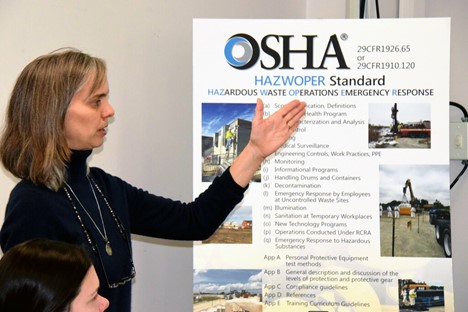
OSHA administers $11.7 million in training grants

The U.S. Department of Labor will provide a funding opportunity for $11.7 million in Susan Harwood Training Grants to support the delivery of training and education to help workers and employers identify and prevent workplace safety and health hazards. Administered by the department’s Occupational Safety and Health Administration (OSHA), the grants will target disadvantaged, underserved, low-income, and other hard-to-reach, at-risk workers and employers. The grants are available to non-profit organizations, including community-based, faith-based, grassroots organizations, employer associations, labor unions, join labor/management associations, Indian tribes and public/state colleges and universities.
Applicants may apply in the following categories:
- Targeted topic training: Support educational programs that identify and prevent workplace hazards and require applicants to conduct training on OSHA-designated workplace safety and health hazards.
- Training and education materials development: Support the development of quality classroom-ready training and educational materials that identify and prevent workplace hazards.
- Capacity building: Allow organizations to develop a new training program to assess needs and formulate a plan for moving forward to a full-scale safety and health education program, expanding their capacity to provide occupational safety and health training, education, and related assistance to workers and employers.
Submit applications no later than 11:59 p.m. Eastern time on Aug. 1, 2022. Applicants must register with grants.gov and the System of Award Management to apply.
The grants honor the legacy and work of Dr. Susan Harwood who, during in her 17 years with OSHA, developed workplace safety guidelines for benzene, formaldehyde, bloodborne pathogens and lead in the construction industry. Harwood also was primary author of OSHA’s cotton dust standard which virtually eliminated byssinosis — a lung disease that causes asthma-like symptoms — among textile workers.










